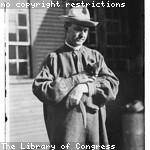"Title
The best Dhikr is: There is no god but Allah
Hadith_Text
JÄbir (may Allah be pleased with him) narrated that he heard the Messenger of Allah (may Allah's peace and blessings be upon him) say: ""The best Dhikr is: There is no god but Allah.""
Explanation
In this Hadīth, the Prophet (may Allah's peace and blessings be upon him) informs us that the best words of Dhikr is to say: There is no god but Allah.
In another Hadīth, he said: ""The best of what I and the prophets before me said is: There is no god but Allah, alone who has no partner.""
There is no doubt that this is a great statement: the heavens and the earth were established by it and all creation was created for it. For this statement Allah, the Almighty, sent His messengers, revealed His books, and legislated His laws. For this statement the scales of justice were instituted, the records of deeds were kept, the market for Paradise and Hell was set up (an idiom of gaining or losing by good or bad deeds that lead to Paradise or Hellfire).
Its meaning is: There is no god but Allah. Its conditions are seven: knowledge, certainty, acceptance, obedience, truthfulness, sincerity, and love. All past and future nations will be questioned about it. On the Day of Judgment when each and every person will stand before Allah, they will not be able to move from their places until they are asked what they worshiped and what was their response to the messengers of Allah (i.e. the meaning and significance of this statement).
The answer to the first question (concerning Allah) is by fulfilling the statement ""There is no god but Allah"" in knowledge, belief, and action. The answer to the second question (about the Prophet) is by fulfilling the statement ""Muhammad is the Messenger of Allah"" in knowledge, belief, action, and obedience.
The Prophet (may Allah's peace and blessings be upon him) said: ""Islam is based on five pillars: Testifying that there is no god but Allah and that Muhammad is the Messenger of Allah...""
Benefits
The word of monotheism is the best speech, for it affirms the oneness of Allah and denies the existence of partners with Him. It is the best phrase uttered by the prophets, who were sent for its sake, fought under its banner, and were martyred in its cause. It is the key to entering Paradise and salvation from Hellfire.
Grade
Hasan/Sound.
Takhrij
[Ibn Maajah]
"
発見する 投稿
Discover ページで魅力的なコンテンツと多様な視点を探索してください。新鮮なアイデアを発見し、有意義な会話をしましょう
"Title
The best Dhikr is: There is no god but Allah
Hadith_Text
JÄbir (may Allah be pleased with him) narrated that he heard the Messenger of Allah (may Allah's peace and blessings be upon him) say: ""The best Dhikr is: There is no god but Allah.""
Explanation
In this Hadīth, the Prophet (may Allah's peace and blessings be upon him) informs us that the best words of Dhikr is to say: There is no god but Allah.
In another Hadīth, he said: ""The best of what I and the prophets before me said is: There is no god but Allah, alone who has no partner.""
There is no doubt that this is a great statement: the heavens and the earth were established by it and all creation was created for it. For this statement Allah, the Almighty, sent His messengers, revealed His books, and legislated His laws. For this statement the scales of justice were instituted, the records of deeds were kept, the market for Paradise and Hell was set up (an idiom of gaining or losing by good or bad deeds that lead to Paradise or Hellfire).
Its meaning is: There is no god but Allah. Its conditions are seven: knowledge, certainty, acceptance, obedience, truthfulness, sincerity, and love. All past and future nations will be questioned about it. On the Day of Judgment when each and every person will stand before Allah, they will not be able to move from their places until they are asked what they worshiped and what was their response to the messengers of Allah (i.e. the meaning and significance of this statement).
The answer to the first question (concerning Allah) is by fulfilling the statement ""There is no god but Allah"" in knowledge, belief, and action. The answer to the second question (about the Prophet) is by fulfilling the statement ""Muhammad is the Messenger of Allah"" in knowledge, belief, action, and obedience.
The Prophet (may Allah's peace and blessings be upon him) said: ""Islam is based on five pillars: Testifying that there is no god but Allah and that Muhammad is the Messenger of Allah...""
Benefits
The word of monotheism is the best speech, for it affirms the oneness of Allah and denies the existence of partners with Him. It is the best phrase uttered by the prophets, who were sent for its sake, fought under its banner, and were martyred in its cause. It is the key to entering Paradise and salvation from Hellfire.
Grade
Hasan/Sound.
Takhrij
[Ibn Maajah]
"
"Title
O Allah, I seek refuge in Your pleasure from Your wrath and in Your pardon from Your punishment, and I seek refuge in You from You. I am not capable of enumerating praise of You. You are as You have praised Yourself
Hadith_Text
‘Ā'ishah (may Allah be pleased with her) reported: One night I did not find the Prophet (may Allah's peace and blessings be upon him). As I groped in search of him, I found him bowing – or prostrating – and saying: ""Glory and praise be to You. There is no god but You)."" In another narration: “My hand fell over his feet while he was in prostration, with his feet erect. He was supplicating: 'O Allah, I seek refuge in Your pleasure from Your wrath and in Your pardon from Your punishment, and I seek refuge in You from You. I am not capable of enumerating praise of You. You are as You have praised Yourself.'""
Explanation
In this HadÄ«th, ‘Ā'ishah (may Allah be pleased with her) relates that one night she missed the Prophet (may Allah's peace and blessings be upon him) and did not find him in his bed. So, she went in search for him, thinking he might have gone to one of his other wives. But, she found him in a state of bowing or prostration, saying: “Glory and praise be to You. There is no god but Youâ€, meaning: I declare You free from anything that does not befit You, and I praise You for all of Your actions. You are worthy of absolute praise and exaltation. There is no deity worthy of worship but You. As reported in another narration, while she was searching for him, her hand fell over the soles of his feet, as there was no light that would enable her to see him. So, she was simply groping about with her hand until it fell upon him while he was prostrating. When she found him, she heard him saying: “O Allah, I seek refuge in Your pleasure from Your wrathâ€, meaning: I seek refuge in Your pleasure from Your wrath. This is because the remedy of everything is its opposite and wrath is the opposite of pleasure. “and in Your pardon from Your punishmentâ€, meaning: and I seek refuge in Your pardon from Your punishment. “and I seek refuge in You from Youâ€, meaning: I seek refuge in Allah from Allah, because no one can ever provide refuge from Allah, the Almighty, and salvation from His punishment but the Almighty Lord Himself. “I am not capable of enumerating praise of You"", meaning: I cannot praise You as You deserve, no matter how much I try. My praise of You will always be far less than the praise due to You. “You are as You have praised Yourselfâ€, meaning: since I, and everyone else, cannot praise You duly, I render to You the praise You have attributed to Yourself.
Benefits
Grade
Sahih/Authentic.
Takhrij
[Muslim]
"
"Title
Wake up ‘Āʾishah and pray Witr
Hadith_Text
‘Ā'ishah (may Allah be pleased with her) reported: The Prophet (may Allah's peace and blessings be upon him) used to pray at night while she would be asleep in front of him. When only the Witr was left, he would wake her and she would perform it. According to another narration, he would say: ""Wake up ‘Ā'ishah and pray Witr.""
Explanation
The Messenger of Allah (may Allah’s peace and blessings be upon him) used to perform the night prayer, while ‘A'ishah would be asleep in front of him. According to another narration by Al-BukhÄri and Muslim, she said: “The Prophet (may Allah's peace and blessings be upon him) used to perform the night prayer while I would be lying between him and the Qiblah, just as a coffin would be placed.†When the Prophet (may Allah's peace and blessings be upon him) finished his night prayer, and just before starting the Witr prayer, he would wake her up to pray Witr. A narration by Muslim reads: “When it was time for the Witr prayer, he would say: ‘Wake up, ‘A'ishah and pray Witr.'"" A narration of Abu DawÅ«d reads: “When he wanted to perform the Witr prayer, he would wake her up, and she would perform it."" So, the Messenger of Allah (may Allah’s peace and blessings be upon him) would let ‘A'ishah asleep at the beginning of the night. He would not wake her until he was done with his night prayer and only had the Witr to pray. He would wake her so that she would pray immediately and not oversleep and miss the Witr.
Benefits
Grade
Sahih/Authentic.
Takhrij
[Al-Bukhari and Muslim]
"
"Title
When the end of time draws near, the dream of a believer can hardly be false, and the dream of a believer is one part from forty-six parts of prophet-hood
Hadith_Text
Abu Hurayrah (may Allah be pleased with him) reported that the Prophet (may Allah's peace and blessings be upon him) said: ""When the end of time draws near, the dream of a believer can hardly be false, and the dream of a believer is one part from forty-six parts of prophet-hood.""
In another narration, the Prophet (may Allah's peace and blessings be upon him) said: ""Those of you who have the most truthful dreams are those who are the most truthful in speech.""
Explanation
The dreams of believer at the end of time are true. It may be a dream about something that is happening in real life, or something that is going to happen, and then it happens exactly as in the dream. So, such a dream is considered like prophetic revelation in the truthfulness of its content or indication.
""The dream of a believer is one part from forty-six parts of prophet-hood"", i.e. from the parts of prophetic knowledge, considering that it includes information about the unseen. Prophet-hood is gone but its knowledge remains.
The number forty six was specified because the age of the Prophet (may Allah's peace and blessings be upon him) in the soundest narrations was sixty-three at the time of his death. His prophetic mission lasted for twenty-three years, as he was sent with the message of Islam at the age of forty. For six months before the start of his mission, he used to see good dreams (visions), which would come true as clear as daylight. Then he saw the angel (Jibrīl) while awake. So, the ratio of the period of revelation received in dreams (six months) to the duration of his prophet-hood (twenty-three years) is one half to twenty three, which is equal to one part to forty six parts.
His statement: ""Those of you who have the most truthful dreams are those who are the most truthful in speech"", means that if the person is truthful in his speech and close to Allah, then his dreams are mostly closest to being true. This is why he specifically mentioned the righteous in the narration of Al-BukhÄri: ""A good dream comes from a righteous man.""
As for the one who is not truthful in his speech and commits sins openly and secretly, then his dreams are mostly the result of the devil manipulating his mind.
Ibn al-Qayyim (may Allah have mercy upon him) said: ""Whoever wishes to have truthful dreams, then he should be truthful and eat from lawful earnings while observing Allah's commands and prohibitions, and let him go to sleep in a state of purification and face the Qiblah and say Dhikr until he falls asleep. If he does so, his dreams will hardly ever be false.â€
Benefits
Grade
Sahih/Authentic.
Takhrij
[Al-Bukhari and Muslim]
"
"Title
Indeed, you will have the reward that you expected
Hadith_Text
Ubayy ibn Ka‘b (may Allah be pleased with him) reported: There was a man from the AnsÄr who, as far as I know, lived farther from the mosque than anyone else, and he never missed a prayer. It was said to him: ""If only you would buy a donkey so that you may ride it in the darkness and the scorching heat."" He said: ""I do not like that my house be near the mosque, for I want the steps I take to the mosque and back from it to my family to be recorded for me."" Upon this, the Messenger of Allah (may Allah’s peace and blessings be upon him) said: ""Verily, Allah has gathered all of that for you.""
Explanation
Going to mosques and coming back from them merit reward if one does it seeking thereby the reward from Allah, the Exalted. This HadÄ«th mentions a man whose house was distant from the mosque. However, he used to come to the mosque for every prayer, expecting thereby a reward from Allah for his walking to the mosque and walking back to his house. Some people said to him: ""If only you purchased a donkey to ride it in the darkness of the night and the heat of the day, "" meaning in the dark to attend the ‘IshÄ' and Fajr prayers and on very hot days, especially that the climate of Hejaz is hot. The man replied that he would not like to live right next to the mosque, and that he was pleased with living far from it because he walks many steps to the mosque and many steps back from it. If he lived closer to the mosque, all these steps would not be recorded for him (in his record of good deeds). He clarified to them that he expected the reward from Allah, the Exalted, for his walking to and back from the mosque. Thereupon, the Messenger of Allah (may Allah’s peace and blessings be upon him) said to him: ""Allah has gathered all that for you"", meaning: Allah has fulfilled your wish of having your steps to and from the mosque recorded for you. According to another narration, the Prophet (may Allah's peace and blessings be upon him) said to the man: ""Indeed, you will have the reward that you expected.""
Benefits
Grade
Sahih/Authentic.
Takhrij
[Muslim]
"
"Title
There are forty good qualities, the best of which is the lending of a milch goat. Anyone carries out any of these virtuous deeds seeking its reward (from Allah) with firm confidence that he will receive it, Allah will admit him to Paradise
Hadith_Text
Abu Muhammad AbdullÄh ibn ‘Amr ibn al-‘Ās (may Allah be pleased with him) reported that the Messenger of Allah (may Allah's peace and blessings be upon him) said: ""There are forty good qualities, the best of which is the lending of a milch goat. Whoever carries out any of these virtuous deeds seeking its reward (from Allah) with firm confidence that he will receive it, Allah will admit him to Paradise.""
Explanation
The Prophet (may Allah's peace and blessings be upon him) encourages his Ummah to do goodness that involves, as he mentioned, forty good qualities. He mentioned only one quality, which is the best of them, and kept the rest unknown. This quality is the case when a sheep owner lends a poor person a milch goat to benefit from its milk and return it after meeting his/her need to its owner. This Hadīth indicates that righteous deeds are easy and numerous, and thus people should compete in doing them.
Benefits
Grade
Sahih/Authentic.
Takhrij
[Al-Bukhari]
"
"Title
When Allah created Adam (peace be upon him), He said to him: Go and greet those – a group of angels who were sitting – and listen to what they are going to say in response to your greeting as that will be your greeting and the greeting of your offspring
Hadith_Text
Abu Hurayrah (may Allah be pleased with him) reported that the Prophet (may Allah's peace and blessings be upon him) said: ""When Allah created Adam (peace be upon him), He said to him: 'Go and greet those – a group of angels who were sitting – and listen to what they are going to say in response to your greeting as that will be your greeting and the greeting of your offspring.' He (Adam) said: 'As-SalÄmu ‘alaykum (peace be upon you).' They replied: 'As-SalÄmu ‘alayk wa rahmatullÄh (Peace and mercy of Allah be upon you),' thus adding 'wa-rahmatullÄh (and mercy of Allah)' in their response to his greeting.""
Explanation
When Allah created Adam, He ordered him to go to a group of angels and greet them with peace and then listen to their response to his greeting because that would be the prescribed greeting for him and his offspring after him who follow the religion of the messengers. So he said: As-SalÄmu ‘alaykum (peace be upon you), and they replied: As-SalÄmu ‘alayk wa rahmatullÄh (peace and mercy of Allah be upon you), adding 'rahmatullÄh' (mercy of Allah). This has, thus, become the prescribed wording when greeting and returning the greeting. Other HadÄ«ths had the addition: ""wa rahmatullÄh wa barakÄtuh (...and mercy of Allah and His blessings be upon you!)""
Benefits
Grade
Sahih/Authentic.
Takhrij
[Al-Bukhari and Muslim]
"
"Title
if the deceased was righteous, it (the corpse) would say: Send me forward, send me forward. But if he was not righteous, it would say: Woe to it! Where are you taking it?
Hadith_Text
Abu Sa‘īd al-Khudri (may Allah be pleased with him) reported that the Prophet (may Allah's peace and blessings be upon him) said: ""When a dead body is placed on a bier and men carry it on their shoulders, if the deceased was righteous, it (the corpse) would say: 'Send me forward, send me forward'. But if he was not righteous, it would say: 'Woe to it! Where are you taking it?' Everything hears its voice except humans. If they were to hear it, they would fall unconscious.""
Explanation
When the body of a dead person is placed on the bier, then the men carry it on their shoulders, if the dead person was righteous, his corpse would say: ""Hasten in taking me to the grave"" out of happiness with what it sees ahead of the bliss of Paradise. If the dead person was not righteous, his corpse would say: ""What ruin and what destruction (awaits me)!"" because of what it sees of an evil destination, so it hates to be taken to the grave. All of Allah's creation hears it, of animals and inanimate objects, except human beings. If a human being were to hear it, they would fall unconscious or die of terror.
Benefits
Grade
Sahih/Authentic.
Takhrij
[Al-Bukhari]
"
"Title
If a person falls ill or travels, he shall be credited with whatever good deeds he used to perform while at home and in good health
Hadith_Text
Abu Mūsa al-Ash‘ari (may Allah be pleased with him) reported: The Messenger of Allah (may Allah’s peace and blessings be upon him) said: ""If a person falls ill or travels, he shall be credited with whatever good deeds he used to perform while at home and in good health.""
Explanation
If a person habitually performs some pious act when he is healthy or has free time, and then he becomes sick and therefore unable to perform this same deed, Allah, the Almighty, will record for him the reward in full, as if he has actually done it. The same holds true if a person is prevented from doing this usual act by a journey or anything else, like menses.
Benefits
It shows the vast mercy and kindness of Allah towards His servants.
If a person becomes unable to do certain good deeds he habitually performs due to a lawful excuse, like travel or illness, while having a firm intention to resume it once he is able, he will have the full reward exactly as if he is healthy and in residence.
Grade
Sahih/Authentic.
Takhrij
[Al-Bukhari]
"
















Aisha Ibrahim
コメントを削除
このコメントを削除してもよろしいですか?
Yasmin Khan
コメントを削除
このコメントを削除してもよろしいですか?
TRUSH
コメントを削除
このコメントを削除してもよろしいですか?